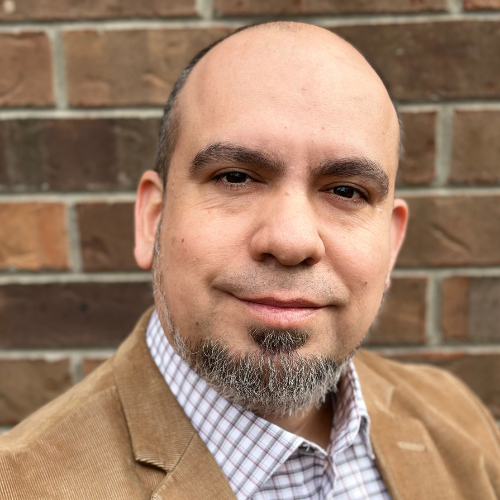Commentary on Luke 17:5-10
“Increase our faith!” plead the disciples. Only in retreating to the first five verses of chapter 17 can we better understand the context that leads them to make this petition. In these first few verses (1-4), Jesus issues some heavy requirements for discipleship: he warns against causing the “little ones” (in other words, the most marginalized members of society, new disciples, children) to stumble, and emphasizes the need to both rebuke fellow followers that falter while also offering radical forgiveness to each other. It’s worth noting that Jesus has already dealt with the difficult and life-altering demands of discipleship in a significant way earlier in Luke 14:25-33 (challenging family norms, carrying the cross, giving up all possessions), making the verses in Luke 17 a not-so-subtle reminder.
Jesus’ loaded response to the disciple’s request for more faith—telling them that all they required was the faith of a tiny mustard seed to do the impossible—tells us that they are asking for the wrong thing. But what’s wrong with wanting just a little more faith to meet the urgent call of their fearless leader?
Jesus, ever the teacher, creatively shares the essentials for cultivating a strong faith. Faith can’t be quantified on a line graph, as if saying “I have 25% more faith this year than last year!” Faith does not increase like magic. It is felt and known through lived experience. This can only come through practice, in those challenging moments when faith is put to the test. I don’t mean “test” in the sense that you pass or fail, but that you move forward with a concrete step in the justice-seeking and peacemaking way of Jesus, with a discerning heart, regardless of uncertainty, worry, or fear.
Dr. Martin Luther King, Jr. exemplified this when he described the fear that overcame him when he began receiving death threats during the Montgomery bus boycott in the mid-1950s. One night after a particularly troubling phone call, King found himself exasperated, unable to sleep, and ready to quit. While offering a humble, desperate prayer, King says that he felt the presence of God like never before and heard the words speaking to him in the depth of his soul, “Stand up for righteousness, stand up for truth. God will be at your side forever.” As King notes, “the outer situation remained the same, but God had given me inner calm.”1
While my experience does not compare to what King and the Black community in Montgomery faced in challenging longstanding Jim Crow racism in the South, I resonate with the feelings of worry and fear during my first act of civil disobedience. Alongside fellow faith leaders, I joined a group of workers facing discrimination and retaliation after organizing for improved working conditions. Would we be mistreated by the police? Would I have to spend a night in jail? As we gathered and heard testimonies from the workers who were risking arrest to bring some dignity and justice to their workplaces, and as we all shared stories about what compelled us to show up that day, my agitation was transformed into a peaceful inner knowing that whatever took place, all would be well. After twelve hours of fellowship in a cold, tiny jail cell with fellow dissidents and a few other arrestees, we were released, and I felt imbued with a faith that could truly uproot a tree and plant it in a sea!
Jesus’ outrageous and disproportionate example of how only a seemingly small amount of the right kind of faith—Jesus is talking quality, not quantity—is needed to do incredible things speaks to the simple truths of a gospel faith. Faith is most powerfully expressed and tangibly felt when it is keyed into an action that draws awareness of the basileia tou theou (the kingdom, kin-dom, commonwealth of God2) that is among/within us (Jesus says this in Luke 17:20-21), imminent and breaking through in the world. According to Jesus and the gospel that is articulated in the inseparably political, economic, and religious world of Luke-Acts, this basileia prioritizes the poor and the marginalized, critiques the rich and their wealth, and calls for a cooperative, egalitarian, and even utopian re-ordering of society.3 For a refresher on this, revisit the blessings and woes that Jesus offers in Luke 6:20-26 (“Blessed are you who are poor … you who hunger now … you who weep now; woe to you who are rich … who are well fed now, et cetera), and descriptions of the earliest Christian communities in Acts 2:44-46 and 4:32-35 (“All believers … had everything in common; there were no needy persons among them).
Everything in this passage—even the troubling verses in Luke 17:7-10 that employ the master-slave motif to speak of the requirements of discipleship—as well as the overall tenor of the gospel of Luke, points to faith as a praxis, an ongoing spiral-like process of reflection, action, and grace that only “increases” as the process itself unfolds and expands in breadth and depth. If we can understand the overall vision of Luke as highlighted above, knowing that Luke drew upon the often unjust but entrenched social and economic structures of the ancient world such as slavery to make a point, then we can uncover the kernel of importance in these verses. With faith as a praxis, much like the servants who are expected to do their jobs and not be thanked for it, it is a given that we must be actively engaged in prayerful, reflective action for our own self-transformation and to tap into the collective basileia. Faith enacted in a lived struggle for greater justice and compassion in the world then becomes what theologian Johann Baptist Metz calls “a solidaristic hope in the God of Jesus as the God of the living and the dead, who calls all to be subjects in God’s presence.”4
Notes
- Martin Luther King, Jr., “The Strength to Love,” in A Testament of Hope: The Essential Writings and Speeches of Martin Luther King, Jr., (New York, NY: HarperCollins, 1986), 508-509.
- For discussions about the kin-dom or commonwealth of God, see Ada María Isasi-Díaz, “Kin-dom of God: A Mujerista Proposal,” in In Our Own Voices: Latino/a Renditions of Theology (Maryknoll: Orbis, 2010), 181; and David Ray Griffin, John B. Cobb Jr., Richard A Falk, and Catherine Keller, The American Empire and the Commonwealth of God: A Political, Economic, Religious Statement (Louisville, KY: Westminster John Knox Press, 2006).
- Luise Schottroff and Wolfgang Stegemann, Jesus and the Hope of the Poor (Eugene, OR: Wipf & Stock, 1990), 67-68, 82-83, 116-118.
- Johann Baptist Metz, Faith in History and Society: Toward a Practical Fundamental Theology, translated and edited by J. Matthew Ashley (New York, NY: Crossroad Publishing, 2007), 81.



October 2, 2022